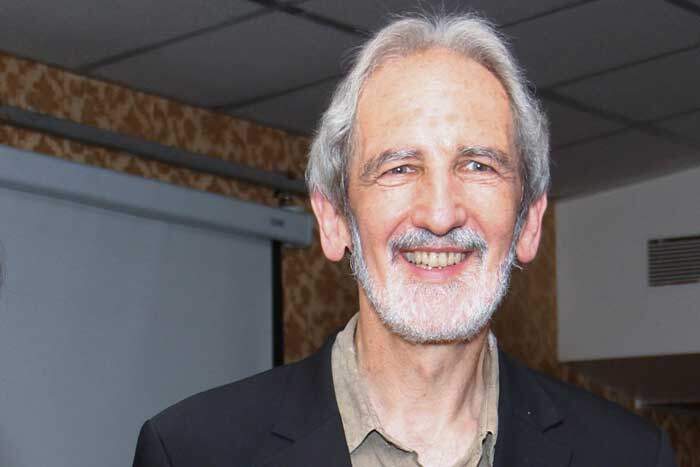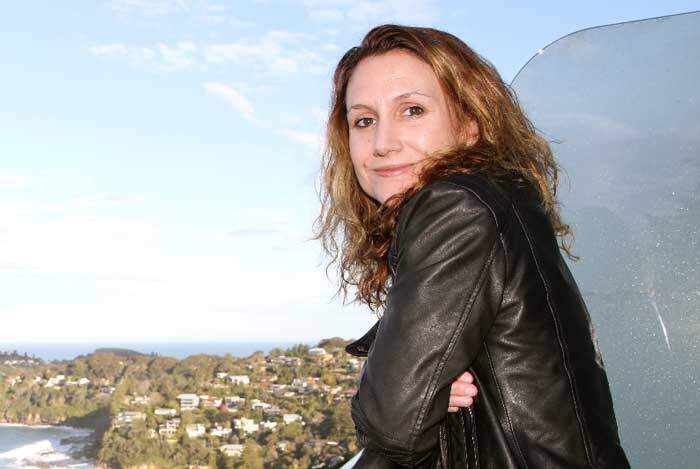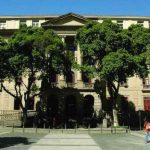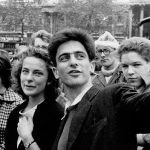Jerome de Groot, Professor at University of Manchester, talks about the ways we consume the past, either through a History lesson, or through a sold DNA test. Groot is a reference in the field of Public History.
André Lemos Freixo interviews Jerome de Groot
The “consumption of history” is the subject of Jerome de Groot, Professor of Literature and Culture at the University of Manchester (UK). “We are surrounded by versions of the past. We use them, read them, engage with them. Most of all, at the moment, we consume them – we buy them, watch them, read them. They connect us to a global phenomenon of pastness, as well as reminding us of our local particularity”, says Groot, who is one of the leaders of the “Double Helix History” program, and author of the book “Consuming History: Historians and Heritage in Contemporary Popular Culture”, widely read by those who study and make Public History.
In this interview to historian André de Lemos Freixo, Lecturer at the History Department of the Federal University of Ouro Preto (UFOP), Groot gives his definition of Public History, talks about his involvement with the non-academic public, genealogy practices connecting people to different backgrounds, and discuss some aspects of the “consumption of history.”
Why did you choose to work with Public History? How do you define Public History?
The two questions are linked for me. I’m not an (professional) historian. I trained as a literary scholar, and so I’m not concerned about ‘history’ as a subject. When I started working on this material I didn’t know that such a discipline existed, really, I just had a sense that ‘history’ was happening in public and that we needed to look at it. I could see that there was a huge interest in the past but that the majority of ways that this past was being presented to people was not understood by academics. I began to get interested in television and film versions of the past, and to worry that historians seemed not to be too engaged with the type of history that was happening outside of particular contexts. I started to think about how we ‘consume’ the past, that is, how we use it in our lives and the ways in which we pay for it and use it. The more I looked, the more I saw – from museum gift shops to advertising, from political argument to Hollywood film. History is consumed, read, interrogated, used, thought about and debated in millions of places. The work I did initially made me think carefully about terminology. What is ‘history’, after all? Who owns it, writes it, makes it, uses it? These are key questions. Indeed, as has been very clear in the past 5 years, the role of history in public life is increasingly troubling, and we need to participate in a critique of this in order to offer an alternative.
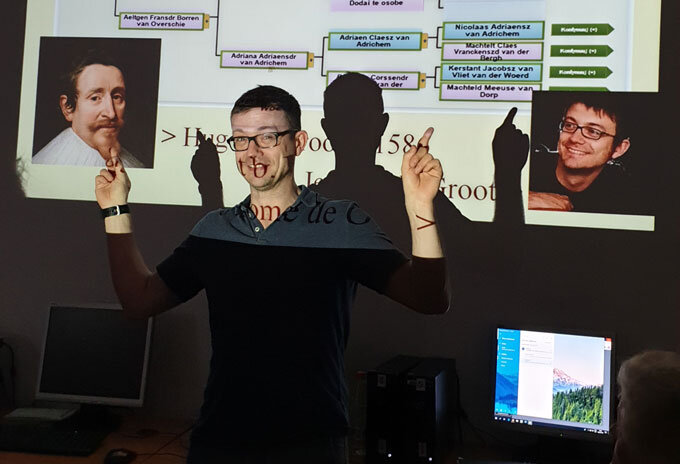
There are multiple definitions of the idea of ‘public history’. For me ‘public history’ is the study of the way that history works and is understood in culture and how it is used by communities. My version of it is also interested in the link between this approach and social history, identity history, and the history of the everyday. I have also, over the time I’ve been working in this area, changed my outlook considerably in terms of the international scope of my investigation. I began working very much on material that was produced in the UK or USA. I’m now very much of the opinion that we need to think internationally and transnationally, to consider history as something working both locally and globally. I’ve also got more politically engaged, with discussions of race, ethnicity, indigeneity, nationhood, cultural value and identity becoming more central to my discussions.
In 2009 you published a book called Consuming History, could you tell us a little more about the phenomenon of consuming history in contemporary times?
We are surrounded by versions of the past. We use them, read them, engage with them. Most of all, at the moment, we consume them – we buy them, watch them, read them. They connect us to a global phenomenon of pastness, as well as reminding us of our local particularity.
My argument is twofold, really. Firstly, we need as citizens and scholars to see this, and to be aware of the impact of popular history on the historical imagination. This is profound, I think. The way that a citizen is enabled to imagine the past, and their relationship to it, is hugely important. The tools they are given to do that are not neutral and not random. The way we are ‘taught’ to think about the past is key, whether this is by a teacher or by a game.
The second, linked, aspect of the argument is about popular historiography. I think that popular texts, of all kinds, allow us to think about history. They teach us, yes, and give us ‘content’ for envisaging what nineteenth-century China looks like, for instance, or what happened in France in 1789. Yet popular texts also provide an alternative way of understanding the past to be constructed. They allow us insight into the ways that the past is made, written, imposed; and they give us tools of critique of this structure. So ‘popular historiography’ is enfranchising, as historical texts of all kinds allow a user/ reader/ player to challenge normative historical thinking and to recognise that the ‘past’ is interpreted and made for us in multiple ways, whether by film-makers or historians themselves.
The Double Helix History project thematizes how DNA research has impacted the understanding of certain historical imaginaries in contemporary times. In Brazil, it is not very common to see historians working with this kind of object. Could you tell us a bit more about your research and experience?
I am interested in how people ‘get’ their past, and I’ve become interested in the past couple of years in the way that we are beginning to understand the past through the prism of genetics. An easy example is personal genetic testing for ancestry and ethnicity. This is very common – around 20 million people worldwide have done this. People are therefore ‘linked’ to their past through their genetic make-up, being told that they have connections to countries and people because of the genetic code. They are encouraged to connect with others and to write their own narratives accordingly. Incidentally it is a good example of ‘consuming’ history, as these 20 million people have paid for their access to their genetic past, and the companies that sell this service have grown hugely.
So the personal genetic genealogy is a great way of showing how we ‘know’ ourselves in relation to the past differently in a post-genomic age. Clearly we understand the ‘human’ differently, both now (we can ‘read’ ourselves anew) or in the past (ancient DNA means we can understand homo sapiens differently). It follows logically then that, if the ‘human’ is different, then their relation to the past might be understood differently. What kinds of past might we write with this new genetic understanding? How might this change the ways that we think of ourselves? A good example here is the X-Men film Days of Future Past, which dramatizes anxiety about genetics whilst also telling an historical story about post-Vietnam America, at the same time positing a possible challenge to linearity and temporal order. If that sounds elaborate what I mean is that the film is allowed to play around with time and our experience of history because our understanding of the human has – through new genomic science – been placed into a state of flux.
My research and experience suggests that a) we don’t know anything at all about genetics (ie. where we are now is the tip of the iceberg), b) scientists love metaphors and we should be wary of them when they describe things, and c) the science is moving fast but there are already aspects of genomic science that are being shut down politically and economically and we need to be wary of this.
You are accustomed to speaking to large audiences of non-experts. How do you feel speaking in front of those audiences?
I love speaking to non-experts. This is where the real work is done, right? If I’m interested in history happening outside the academy then the point is to speak with these audiences. It can be very hard, particularly pitching things. You have to recognise that everyone in the group has something to say, and that you yourself are not there to simply ‘tell’ people things but to facilitate and introduce. I’ve never seen the point of simply unloading things to people, I’d rather make a series of suggestions and see where we get to with them. This has been very easy with the material on genetics as I definitely don’t know enough to be an expert on this material, I’m not a scientist, so I open up ideas and discussion, particularly about bioethics and privacy, and we get a good discussion going.
What ethical challenges would you say historians face when the past and history comes to the public?
These are getting more acute. In fact I think that ethics is the biggest issue and challenge for anyone in the field of history right now. There is first the political challenge – for anyone working in history or on history, we now recognise that we are not in a vacuum and our work has political consequence. In the USA, UK, Brazil, India, Australia, Japan – anywhere you turn, history is being misused and wrongly purposed in order to pursue certain agendas that I disagree with. History is never neutral, and the ways in which it works can never be ‘normal’. So we have a responsibility to watch it carefully. I was reminded of this when I first went to Russia. My work to that point, which I had thought was just nice discussion of TV and film, was interpreted by my Russian colleagues as being useful to them in their challenge to powerful political voices. Their point was that in scrutinising the use and effect of history we began to question who it was made for, and why. It is part of my own luck and privilege as a Western scholar that I had not seen it this way, and I try to remind myself of this.
There is an ethics and a duty to approach the world and the work correctly, but also to recognise our own political and ethical biases. I have a great deal of privilege, both in terms of my gender and my socio-cultural background, and I am acutely aware of this and try to recognise this and mitigate it as much as possible. We have to be so aware that ‘history’ itself is an ideological, rational, western, colonial construct, and the ways that this discourse frames our thinking is highly problematic. We need to recognise that ‘history’ has been a deeply problematic discourse, and to recognise the biases and problems within the institutional contexts in which we work.
I think we also have to think carefully about politicised history that we find distasteful. In the UK and the USA, for instance, history has been used by the far right to make political interventions. I think we have to recognise how this works and how to counter it.
Jerome de Groot is Professor of Literature and Culture at the University of Manchester (UK). He is also Public Historian with the “Double Helix History” Project on DNA, Genealogy, Ancestry and History. He is the author of Consuming History: Historians and Heritage in Contemporary Popular Culture (2008/second edition 2016); Remaking History: the past in contemporary historical fictions (2014); and The Historical Novel (2009).
André de Lemos Freixo is Lecturer at the History Department of the Federal University of Ouro Preto (UFOP)
Editing and revision: Bruno Leal e Ana Paula Tavares.
How to cite this interview
GROOT, Jerome. Consuming History: Consuming history: genealogy, public history, and other engagements with the past (Interview). Interview given to André de Lemos Freixo. In: Cafe Historia – History made with clicks. Available at: https://www.cafehistoria.com.br/public-history-consuming-history/. Posted on Aug 12 2019.


